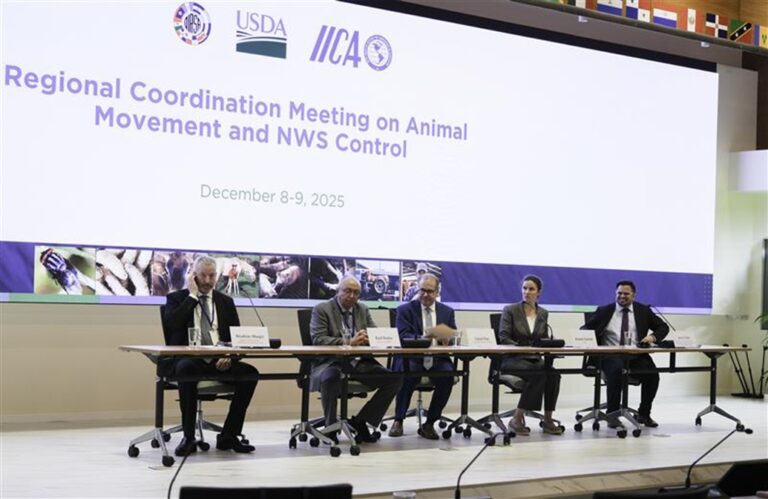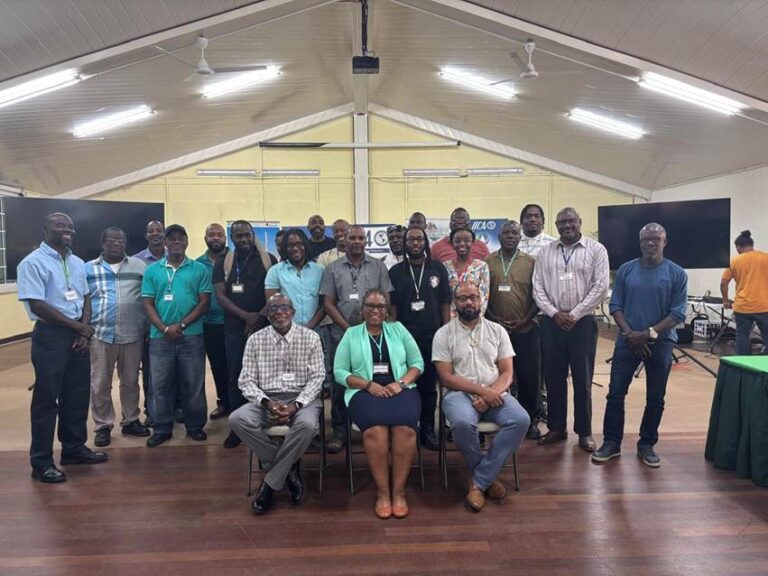In Canada, the Seasonal Agricultural Workers Program (SAWP) has been in place for over 50 years, with workers coming from Mexico, Jamaica and other Caribbean countries.

Ministry of Labour and Social Security
Permanent Secretary, Ms. Colette Roberts Risden & Team
Each year hundreds of seasonal agricultural workers pack their bags and leave their families, to travel to North America to fill a labour gap in the agri-food sector. In Canada, the Seasonal Agricultural Workers Program (SAWP) has been in place for over 50 years, with workers coming from Mexico, Jamaica and other Caribbean countries. A recent report by the Canadian Agricultural Human Resource Council notes that “Over the next decade, fruit and vegetable farmers’ challenges to find workers will intensify as the domestic workforce is anticipated to continue shrinking”. Over half (53%) of the work required on Canadian farms is seasonal, leaving no doubt as to the continued value of the programme. On the other side of the coin, workers in the programme have contributed to their local economies through remittances, investing in their children’s education, home improvements and even small businesses.
As with most cross-cultural programmes, challenges, adjustments, and new knowledge characterize the experience. The latter holds potential, particularly since over 85% of participants in the SAWP return on repeat contracts, with some working at the same farm year after year for 10…. 15… 20 years and more. Anecdotal information and individual testimonies from Canadian employers highlight the range of knowledge & skills acquired in operational processes which have translated in unqualified confidence in, and accolades for seasonal workers. But is this knowledge transferable? With the stark differences in the scale, technologies, crops and infrastructure between the home countries and Canada, prospects for transfer may appear few and far between. On closer examination however, there are a handful of cases that provide a glimpse of possibilities.
Mexican workers from the Oaxaca area for example, were able to build a small scale irrigation system for their community and also plant non-traditional crops for the region, such as cabbage, cucumbers and strawberries, based on knowledge gained in Canada. In another case, a former seasonal worker was able to establish his own greenhouse and produce red bell peppers (sweet peppers) for export to Canada. He is now somewhat of a celebrity in his community, and his business has also generated employment.
Caribbean participants in the “farm work” programme have honed skills and gained expertise in greenhouse operations, organic farming, apiary management, and even mushroom farming…some of the appealing niche areas in regional agriculture. The Inter-American Institute for Cooperation on Agriculture (IICA) is exploring the (hidden) potential, by tapping the resource pool of returning seasonal agricultural workers. This is the basis of a recent study conducted in Jamaica, through collaboration with the IICA Delegation in Jamaica, Ministry of Labour and Social Security as well as the Ministry of Industry, Commerce, Agriculture and Fisheries (MICAF). The report was unveiled and validated by stakeholders recently during a technical cooperation mission of the Representative of IICA in Canada, Dr. Audia Barnett. The diverse group unanimously agreed that there was good potential for transfer and use of the skills gained in Canada.
For more information:
Dr. Audia Barnett
audia.barnett@iica.int











